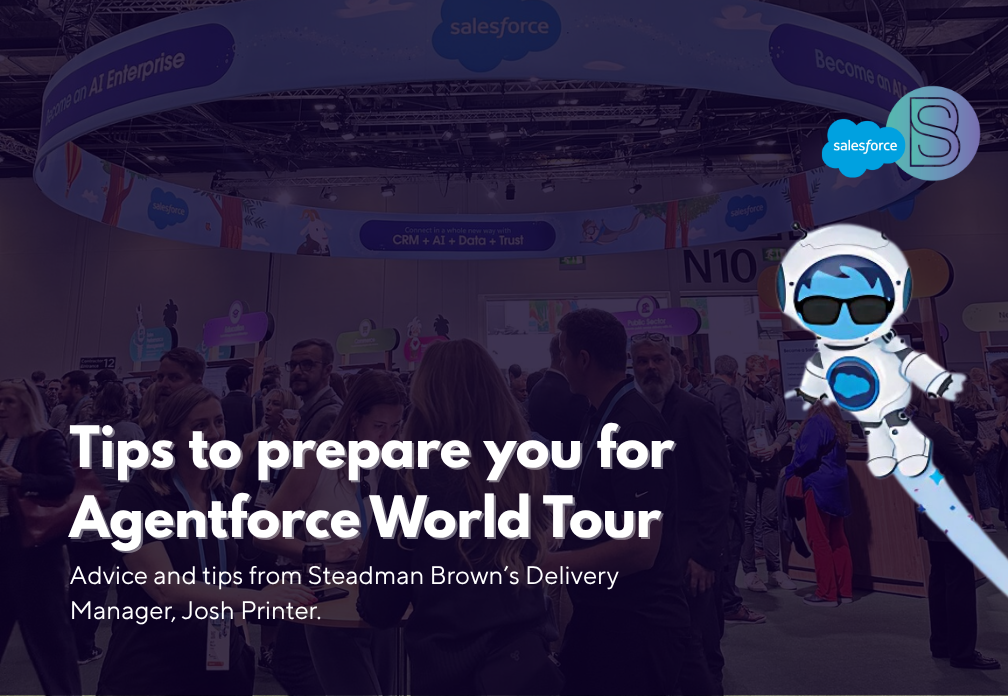
It is not uncommon for Salesforce professionals to feel unsatisfied with their current position at some point in their careers.
Maybe they feel as if they’re missing out on new opportunities, worried about salary, feel the company culture is lacking, or maybe just don't like the job and it's not what they signed up for. When it comes to exploring new opportunities, it can be scary, especially when you might miss out on a performance review and salary increases and you just don't know where the path will lead.
When it comes to exploring new opportunities, it can be scary, especially when you might miss out on a performance review and salary increases and you just don't know where the path will lead.
The purpose of this blog is to explore why making these huge career decisions can be intimidating and what you can do to mitigate risk when deciding whether to move on. Furthermore, it will discuss other factors beyond monetary rewards and how to make a well-informed decision about seeking a new job or waiting for things to (possibly) change.
Loyalty
The Salesforce eco-system is built widely on a sense of community. Community within Salesforce partners, community in individual businesses utilizing the platform, and the generic workplace. With this, it's common for employees to feel loyal to their current employer in such communities, especially if they've received support in the past.
Although having that sense of community and loyalty is important for all Salesforce professionals to feel safe and valued, it’s also important to understand if staying in the current business and role is best for you, or better for the company. One way to know is if the business repays you for your loyalty, and we don’t just mean money.
How to know if that loyalty is repaid:
- You receive praise for hard work and dedication
- There’s no micromanaging or constant mithering about doing your job
- Given opportunities that may not be usually given to someone at your level
- You’ve already had /or have been in talks for a promotion
However, if you feel that you are being taken advantage of or don’t feel appreciated for your work, then that can be a good indication that it’s time to look elsewhere.
Performance Reviews
Performance reviews are a great opportunity for both employers and employees to understand what is needed from each other, issues that need to be addressed, and what can be done to ensure that both parties are happy with any progress made. You’ll be able to talk about performance, growth, and development which can also lead to discussions about salary increases or future promotions.
But what happens when an employer drags their feet or promises changes that never happen?
You could keep asking them, but if they hadn’t made the changes or offered the opportunities as discussed, it’s most likely not going to happen.
The salary negotiation conundrum
For some Salesforce professionals, the task of asking your employer/manager for a pay rise can be incredibly daunting. But when you’ve been in the same role for a while or have been given more responsibilities, then a pay rise is usually valued. But how do you approach your manager to ask this question?
- Do some research into the current market for your role; does it match with the current Salesforce market?
- Speak to them during a performance review while discussing your future and how your role has developed/changed
The employer may agree to a salary increase, but it might not fit the employee's expectations. Protracted discussions can waste time and cause frustration for both the employer and the employee. Moreover, if the company is not performing well financially, granting a salary increase might not be feasible, as the organization's bottom line takes precedence.
Stuck in a rut?
Everyone at some point has or will have the feeling of being stuck in a rut when at work. Maybe the number of projects has died down, or the feeling that your position isn’t going to change or expand on what you already know. With this, it’s easy to suddenly say ‘this job isn’t working for me anymore’ and start to look elsewhere. But we can be quick to jump to conclusions. So here’s what you need to consider and look out for before making the career move decision;
- Is this job currently affecting your mental health? – if you start your day wishing you weren’t going to work, or thanking God that the day is done then that’s a good indication to look elsewhere.
- No developments in your role? – If you haven’t seen any changes or felt that you have developed in your position, first speak with your manager about what opportunities there are before jumping the gun.
- Understand your goals – Assess what it is you want from your current and future opportunities in your Salesforce career. Has your current job met these goals or not close to them? Is there anything you can do to meet these goals?
This is just a snapshot of what to look out for when feeling stuck, so before moving on assess your current situation and if anything can be done to get you out of this rut.
Resigning with grace
The decision to resign from a job is never easy, but sometimes it's a necessity. Resignation should be handled with professionalism and politeness, even if it has been a rocky road. This includes having a conversation with your manager, writing a resignation letter, and considering how to deliver the news to the team or the organization. In addition, a detailed handover plan and a strong work ethic will help ensure a smooth exit.
There is one thing however that you need to be careful of when resigning; employers suddenly promising you the changes you asked for when you’re handing in your notice. Whether this be a promotion or a pay rise, if they weren’t willing to offer these previously to you there isn’t any promise that it will happen.
Finding your next role
If after reading this blog you’ve concluded that it’s time to resign and find your next Salesforce opportunity, we are here to help. Steadman Brown is one pf the top Salesforce Recruiter and specialise exclusively in recruiting Salesforce professionals.
But if you want to know WHY we stand out, WHY we are so successful in the placements we make, and HOW our teams are systematically designed to provide you with the most effective possible experience as a Salesforce Candidate, we’ve listed just a handful of reasons why below:
- In the UK and Europe, we are the only Salesforce recruitment agency with recruitment teams dedicated to specific areas of Salesforce.
- As 100% Salesforce Associate certified recruiters, you are assured that we are not just ordinary recruiters. We know you, we know your role, we know the Salesforce ecosystem, and we can genuinely assist you.
- We have 3 core teams, focused on Salesforce Developers and Architects, Salesforce Consultants and Project Managers, and Salesforce Administrators and Managers.
- Unlike traditional recruitment methods, we screen candidates effectively for Salesforce Careers rather than simply matching CVs with job descriptions.
As Salesforce Head-hunters with over 20 years of experience, we have established ourselves as exclusive recruitment partners to many Salesforce customers and implementation partners.
Join forces with our teams to help you find your next job, your dream job, career advice, and anything in between!
Conclusion
Choosing between staying put and seeking another job opportunity can be challenging. While the fear of missing out on a performance review and a potential salary increase is understandable, it is essential to consider other factors that contribute to job satisfaction and growth.
Evaluating personal and professional goals, considering alternative forms of recognition, and recognising the signs of being in a rut are crucial steps toward making the right career move.



